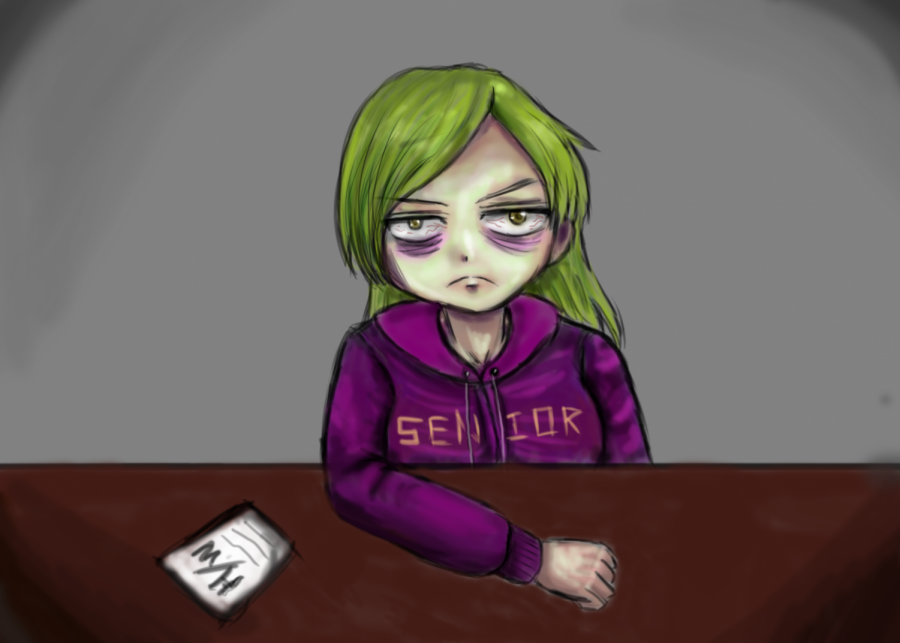Senioritis: The Disease Impacting Last Year Students
SENIORITIS: The high school experience can be an exciting, yet draining time in one’s life. So, when somebody reaches their final year it is reasonable to assume they might lose motivation to put forth their best effort.
March 12, 2019
When first entering high school, incoming students are full of ambition to succeed and thrive in their new academic setting. There is the pressure of maintaining the highest GPA you can possibly hold on to while participating in classes that will show colleges that you are ‘challenging’ yourself. This task, alongside the inevitable participation in extracurriculars, can be overwhelming for some students and incredibly draining. Daniel Semenko says, “I have many other hobbies other than school, such as creating short films, so once I realized school has less importance, I began to focus more on my other hobbies.” When you have attended the same school for four years, a similar, rigorous routine can become a bore or become too much to continue with full effort.
In your fourth year as a high schooler, things related to school seem to become a blur. Nozomu Ohno described his senior experience as “a race until you are admitted into a college. Once that happened, at least for me, I lost all motivation to maintain my highest level of academic performance.” This entire phenomenon is referred to as ‘senioritis,’ as it relates to the seniors of a school, and it can be a challenging obstacle during the final year of high school and even college.
However, this take on ‘senioritis’ focuses on the high school seniors, rather than the college ones. Nearly every senior is preparing for life after their high school years and most are looking forward to it. Senior Claire Nikong is “looking forward to change, and a glimpse into a little bit more of the real world while at college.” Because of the pressure to apply to colleges and fear of missing high school experiences, seniors allocate far less time toward studies. Senior students tend to maintain a GPA of mere adequacy and their chosen classes are often considered far simpler compared those of the underclassmen. The repetitive high school routine seemingly continues forever, making it incredibly difficult to see the finish line, also known as graduation. In senior year this goal becomes incredibly near to reality, making it a year of far less stress, but also much less motivation. Kaleb Aho thinks he “can see the finish line already. It’s almost like it is already said and done.” Like stated previously, for many the importance of good grades diminish, and academic performance and drive can decrease. Additionally, the demeanor of the senior class is far more carefree. For example, when tests are handed back to someone as a sophomore, they will compare their score with others and be hard on themselves if they did worse than their peers. When seniors are handed back their tests, they will casually compare or not even pay attention to how others did. Due to this lack of motivation, a majority of seniors find themselves struggling to turn everything in on time, make it to class on time and study for their tests.
This failure to school commitment can be detrimental to some people as their colleges may still require senior year grades. Every senior knows that this is the case, and it frightens them when talking about getting rescinded from a college. Yet seniors still manage to let their grades slip a bit despite the knowledge that they could get rejected should they slip up in a class.
Some find this time in school as a time to focus on various other extracurriculars or hobbies they may have, some may be determined to find new interests or try new classes, and some simply lose motivation to do anything and decide to fix their sleep schedule.




